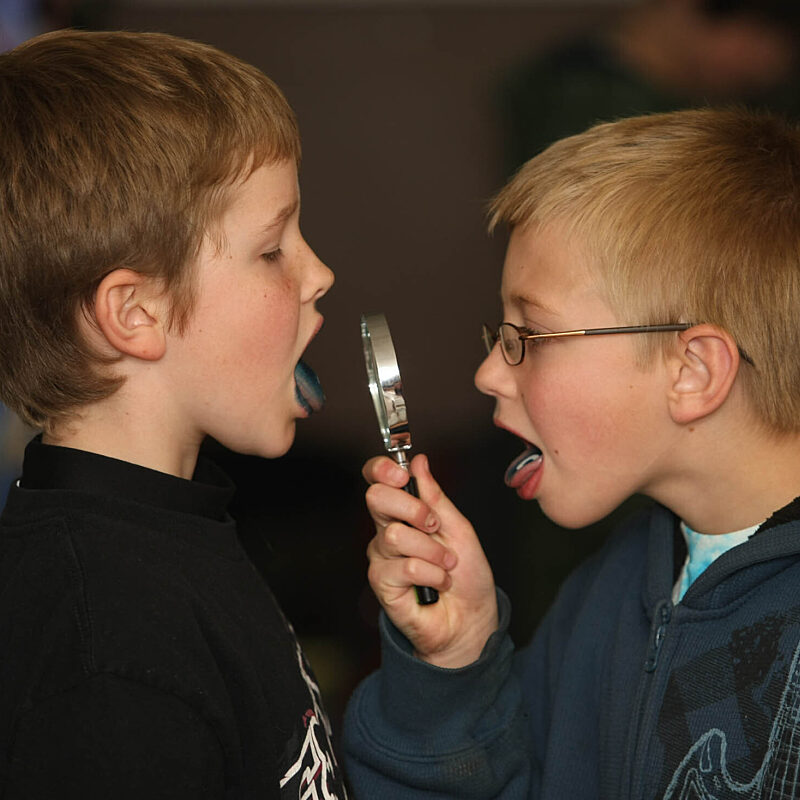God designed saliva to play an important role in our bodies. Organs called salivary glands around our mouth and cheeks make the saliva. It’s mostly made of water with a few other chemicals. It helps keep teeth clean by washing away bits of food. (But you still need to brush and floss!) You’d find it hard to talk without saliva to let your lips, cheeks, and tongue slide around your mouth.
When you chew, the saliva doesn’t only help you swallow food. Digestive enzymes in your spit start breaking your food down—even before it gets to your stomach! And saliva carries food molecules to your taste buds so you can enjoy that delicious recipe.
Your saliva can tell a lot about you. DNA tests use your spit to find where your ancestors came from. Other saliva tests can show whether you have some types of cancer, parasites, or allergies.
God made animals with special saliva too!
- Dog saliva is less acidic than human saliva. That means that it’s less common for dogs to get cavities than humans. It’s a myth that dogs’ mouths are cleaner than humans’. Both people and dogs have lots of different kinds of bacteria in their mouths.
- A type of bird called the edible-nest swiftlet makes nests completely out of solidified strands of its saliva. The nest is shaped like a bowl cut in half, and it can be white, yellow, or red. In Chinese culture, soup made from these bird-spit nests is considered a delicacy.
- Venomous snakes make venom in a type of salivary gland. Like human saliva, the venom has enzymes in it. But these are toxic enzymes that kill or paralyze prey. Most of these snakes inject their venom through hollow fangs.



















